Dreams and Visions: Here and Now
University Park United Methodist Church
20th Sunday in Ordinary Time
October 6, 2024
Scripture: Genesis 28:10 – 17
I know it’s not the way things usually go, but when I was a young man, say in my 20s, I was a lot more cynical than I am now. When I started out as a Pastor, I’d already worked in churches for six years. And I’m sad to say it, but in those six years I’d seen plenty of bad behavior in the church. I had no illusions about the moral purity of Pastors, or the political maneuvering and turf wars that go on in the institutional church. I kind of prided myself on being suspicious of power in any form, knowing that the institutional church is vulnerable to being manipulated by abusive, power hungry people like any institution. We do what we can to keep that kind of behavior out of the church, and to limit the damage and respond in a healthy and accountable way when it does happen, but the reality is, it happens. People are people. We have egos. We’re often afraid. Sometimes we act badly.
Today, I’m a lot less cynical than I used to be. I’ve seen more. I’m more realistic, not just about the evil we can do, but about the wonderful things we can do. I think that as we begin to believe that God is at work in and through us and other people, cynicism becomes a lot harder to sustain. People can be ugly to each other for sure, but we’re often good and kind too. Even in the worst situations, courage and decency can shine through. God can shine through. I’ve seen it a lot. But in my early ministry, in my 20s and early 30s, I hadn’t put that together yet.
As I look back on myself at the time, I think my cynicism may have been a way to protect myself from disappointment and grief I so often felt when I saw churches or Pastors going off the rails. If you expect people to act badly it’s not disappointing when they do, right? It might be sad, or infuriating, or annoying, but at least you can say you were worldly wise enough not to be surprised.
I remember being at Annual Conference a year or two after I started serving churches as a Pastor. For those of you unfamiliar with Methodism, Annual Conference is pretty much what it sounds like: it’s a Conference that happens annually. Every June, Methodist Pastors and lay representatives from every church and ministry in a given region come together to talk about our work, to learn from each other and from guest speakers, to catch up with colleagues, to vote on policy and take care of necessary business. Back then, Annual Conference was always held at Colorado State University in Fort Collins. Our plenary sessions and our worship services were in a big open room, like a ballroom, where we would all sit around these round tables. On the first evening of Annual Conference that year our Bishop, Mary Ann Swenson, preached at our opening worship service.
I honestly can’t remember what she talked about. I couldn’t tell you the scripture text she was preaching on, or much of what she said. But even after all these years, I do vividly recall one thing. She said, “Pastors, I have something to say to you. If no one has told you this, let me be the first. The church is not here to take care of you. The church is here to care for the least, the last, and the lost, and to help the Kindom of Heaven come on earth. If we are not doing that we are not the church.”
And I had to turn my head away from the round table where I was sitting, because my eyes filled up with tears and I was embarrassed that the other people at my table might see my hip, cynical veneer cracking.
Bishops are supposed to be the spiritual leaders of the Annual Conferences to which they’re assigned. And back then, in my youthful cynicism, I mostly scoffed at that. I knew how Bishops were elected. I knew that electing a Bishop is a political process. I was not about to accept the notion that a certain number of votes made someone my spiritual leader. I don’t easily entrust people with that level of authority. But that night, listening to our Bishop, I thought, “that’s my spiritual leader. Her, right there.”
The Bishop was talking about a church that lived what we said we were about, a church that walked its talk. Looking back now, I think what she said was so impactful for me was that I suddenly believed that maybe the church I had dreamed of was possible. Those first six or eight years of church work, they were great in a lot of ways. But they also hurt. They were painful. Because over and over again, I watched the church get wrapped up in concerns of institutional preservation and turf protection. And here was Bishop Swenson, talking instead about a church built on living the gospel. She was encouraging us to paint on a bigger canvas, to ask what God was doing through us, who God was calling us to become.
(This is an aside; it’s not part of my sermon. But while I’m talking about this, I do want to mention that I got back on Friday evening from what’s called the Orders Retreat. The Orders retreat is an annual gathering specifically for Methodist Pastors, and this past week we got to meet and spend some time with our new Bishop, Kristin Stoneking. I can tell you that I am very grateful and excited to have her as our leader. She’s a deeply prayerful person with a strong grounding in scripture. She’s got an amazing background as a Pastor and a seminary professor; she’s done interfaith work, she’s developed interfaith housing, she’s been the executive director of the national Fellowship of Reconciliation. She’s got some serious chops, is what I’m saying. Like I said, that’s just a quick aside, but I did want to mention it.)
But to get back to the sermon, I’ve been thinking a lot this week about our scripture reading for today. The passage describes an important moment in the life of Jacob, a character from the Biblical Book of Genesis. If you’ve read this sequence of stories from Genesis, you know about Jacob: from his birth, Jacob has been out for himself. He’s a twin, and the story says that he comes out of the womb grabbing his brother Esau’s heel – in fact, his name means “heel grabber.” He spends his early life trying to pull his brother down and elevate himself. By this time in the story, he’s stolen his brother Esau’s right of inheritance. He’s just stolen a blessing that his Father intended for his Esau. I know that sounds odd to us, but in that ancient culture the blessing of an elder or leader was understood almost as a material thing, and once it was given it couldn’t be taken or changed. So just as he did with his brother’s birthright, Jacob has once again manipulated people to get something he wants. And then, setting out on a long journey, Jacob stops for the night and has a dream. He sees angels ascending and descending from earth to heaven and back again, and in his dream God speaks to him – not so much about what he will receive, but about what will happen through him.
Through his dream, Jacob realizes that God is painting on a much bigger canvas than he knew. Again, if you’ve read the story, you know this is just the beginning of his coming to terms with himself. It will take him a long time to really understand this, but at that moment he sees for the first time that his life is not about him, but rather about what God will do through him to bless all the people of the earth.
This month, we’re focusing in worship on our dreams and visions for the church. I’m asking all of us to prayerfully consider our financial support in 2025 for this ministry we share. But just as importantly, we are in a time where the church needs to reinvent itself. I think it’s time here at U Park to ask ourselves and to ask God who we are called to be. What does God want to do through us to bless God’s world?
I hope you’ve noticed that we’re seeing some really promising signs of life in our ministry here. Our children’s program has grown from maybe 8 kids last year to 28 this year. Our youth group joined with St. Andrew’s youth to be part of three different service trips this summer. We grew our Vacation Bible School for the second year in a row. We’ve set up volunteer and giving opportunities with Habitat for Humanity, Metro Caring, GraceFull café, and Centus Counseling. We’ve submitted a grant to refurbish the stained glass windows and frames in Wasser Chapel. Our music program is strong, our worship attendance and giving are up. We’re not financially sustainable yet, but I do think that together we’ll get there. And right now we’re on the last leg of a planning process designed to make our vision for ministry a concrete reality. Now is the time to dream big about who God is calling us to be and how we get there from here.
But if our dreams are just about our church growing and thriving; about this congregation being successful, maybe we’re not painting on a big enough canvas. I believe that like Jacob, our life – our individual lives and our life together as this congregation – is ultimately not about us, but about how God is working through us to bless the world. So what is your dream for our church? How is God speaking through your dreams? Are we willing to put aside our cynicism, to risk the belief that the church we dream of is possible? How do we wake up, look around, and say to ourselves, as Jacob did, “How awesome is this place! This is the house of God! This is the gate of heaven!”


